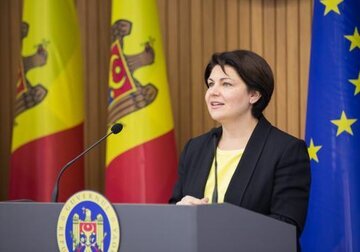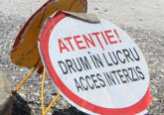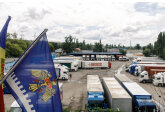
"In the context of the current large-scale crisis, the Cabinet is working intensively to identify opportunities to help the economy," Natalia Gavrilita stated.
Prime Minister stated this when justifying in parliament the need to extend the state of emergency in Moldova. She noted that the war in Ukraine created many crisis situations - logistics and food chains were interrupted, gas, oil and electricity prices rose, imports suffered, and the lack of energy and logistics links with the European Union via Romania made our country more vulnerable. Natalia Gavrilita said that the war still creates many other serious situations where the government's reaction must be immediate, and if the state of emergency is not extended, the Moldovan authorities have no other legal instruments to govern the country in the current situation. Prime Minister added that since the last extension of the state of emergency, the Commission for Emergencies has taken a number of important measures. In particular, conditions were ensured for the signing of contracts for electricity supply for July and August; more than 83 million lei, saved from the use of fuel oil received as a gift from Romania in 2016, were transferred to the Population Support Fund; allowances were given to those directly involved in crisis management; the import of oil products from EU countries was facilitated. Work has also begun on the construction of new access roads in the context of the logistics crisis, and more specifically on the rehabilitation of the Basarabeasca (Moldova)-Berezina (Ukraine) railroad section and the construction of a new bridge over the Prut (Leova-Bumbata). It was ordered to reconnect a number of state institutions to district heating systems. Many previous orders of the Commission were cancelled as a result of overcoming the current situation or adopting appropriate legislative amendments. "Thus, the opposition's fears about the state of emergency, expressed during the previous debate, turned out to be unfounded. Moreover, the government has not used the state of emergency to restrict public demonstrations or protests or to limit the exercise of any other fundamental right. I pledged to parliament that the actions of the government I lead would not exceed the mandate given by parliament, that the government, through the Commission for Emergencies, would act transparently, and that deviations from the framework would be legally proportionate and strictly necessary to manage and overcome the emergency. We have kept this promise and we will continue to keep it," Natalia Gavrilita said. She stressed that Moldova still faces serious challenges today. "There remains a risk that natural gas supplies will be disrupted by military action or unilateral decisions beyond our control. There is also the risk that an expansion of the war will cause a major new flow of refugees. In recent days, we have also witnessed rocket attacks in the Odessa region, which creates an increased risk of an influx of refugees into our country. Pressure on the food and logistics sectors, especially the blockade of Ukrainian ports, also pose security risks for the country. I, like the vast majority of people, would like to return to normalcy, to peace, but war creates serious situations to which the government's response must be immediate. Unfortunately, again, the analyses available to us predict neither an end to the war in a neighboring state, nor the disappearance or mitigation of security risks in the region and for Moldova. That is why we consider the request to extend the state of emergency in Moldova for 60 days, starting from 8 August 2022, not only reasonable, but also urgent. We are not asking for authorization to take additional measures to those which the parliament has already approved by previous decisions," Prime Minister said. // 29.07.2022 – InfoMarket







